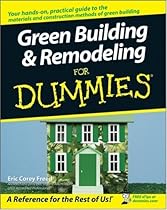Federal agencies are scrambling to come up with ways to get rid of 250,000 properties in various stages of distress and are leaning heavily toward making many of them rentals through investors and previous owners.
by Broderick Perkins
© 2011 DeadlineNews.Com
![]()
![]()
Unauthorized use of this story is a copyright violation -- a federal crime

Deadline Newsroom - Federal agencies are scrambling to come up with ways to get rid of 250,000 properties in various stages of distress and are leaning heavily toward making many of them rentals.
The Federal Housing Finance Agency (FHFA), in conjunction with the U.S. Department of the Treasury and U.S. Department of Housing and Urban Development (HUD), has announced a "Request for Information: Enterprise/FHA REO Asset Disposition", seeking input from both the public and private sectors on options for moving off the books residential real estate owned (REO) properties held by Fannie Mae, Freddie Mac (GSE's or "Government Sponsored Enterprises") and the Federal Housing Administration(FHA).
Federal agencies own a quarter million properties with only about 70,000 of them currently listed for sale. Buyers have made offers on another 22,000 of them, but the bulk, about 158,000, are in limbo.
The Feds want to reduce agencies' carrying costs, including loan losses, and address repair and rehabilitation needs (taxpayers foot the bill) in a manner that recognizes economic and real estate conditions and needs in specific locations, while helping stabilize falling pricesexacerbated by the glut of distressed properties.
"While the Enterprises will continue to market individual REO properties for sale, FHFA and the Enterprises seek input on possible pooling of REO properties in situations where such pooling, combined with private management, may reduce Enterprise credit losses and help stabilize neighborhoods and home values," said FHFA Acting Director Edward J. DeMarco.
"Partnerships involving Enterprise properties may reduce taxpayer losses and meet the Enterprises’ responsibility to bring stability and liquidity to housing markets. We seek input on these important questions," DeMarco added.
Federal agencies are looking hard at selling off pools of properties to investors who will turn the REOs into rental units. It's a strategy that could help ease tight rental markets.
The tactic is hard at work in places like Las Vegas and Florida where a glut of distressed properties have squeezed million dollar homes until they are worth only a quarter million dollars.
While some groups are purchasing distressed properties in bulk to flip and resell, others are renting them out if they can get adequate cash flow to make the deals pencil.
"It's going to be a cold winter. There's nothing we are seeing in jobs or the economy or housing to make us believe there is any more good news for this year. It's making it easy for investors to pick up homes and banks are thinking about that," said Jon Sterling, Director of Marketing at Mountain View-based Altos Research.
However, Feds aren't likely to put all their eggs in one basket.
Another idea includes allowing previous homeowners to rent properties and perhaps even buy them back under a rent-to-own deal.
Current renters could also participate in rent-to-own deals, and the homes could be put up for sale as reduced-price affordable housing.
"As we continue moving forward on housing finance reform, it's critical that we support the process of repair and recovery in the housing market," said Treasury Secretary Tim Geithner.
"Exploring new options for selling these foreclosed properties will help expand access to affordable rental housing, promote private investment in local housing markets, and support neighborhood and home price stability," Geithner added.
• Click on the keywords below for more stories on this subject.
© 2010 DeadlineNews.Com
Advertise on DeadlineNews.Com | Shop DeadlineNews.Com
Get "News that really hits home!" for your Web site or blog from the DeadlineNewsGroup.Com.
You are reading a sample of "News that really hits home!" now available from several beats and published in a growing number of locations.
Broderick Perkins, an award-winning consumer journalist, parlayed 30 years of old-school journalism into a digital real estate news service, the San Jose, CA-based DeadlineNews Group, including DeadlineNews.Com, a real estate news and consulting service and Web site, and the Deadline Newsroom, DeadlineNews.Com's news back shop.
Under the DeadlineNews Group umbrella:
Perkins was the first Examiner to cover three beats for the Examiner.com news service:
• National Real Estate Examiner
• National Consumer News Examiner
• National Offbeat News Examiner
Other DeadlineNews Group Feeds are available from DeadlineNews.Com.
DeadlineNews.Com's Editorial Content Is Intellectual Property • Unauthorized Use Is A Federal Crime
Read more!







